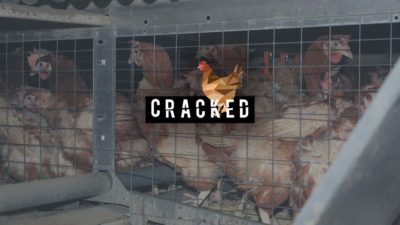Big fat lies

In March 2014, national headlines declared “Saturated fat ‘ISN’T bad for your heart‘” suggesting it is safe to gorge on butter, cheese and sausages. However, the study in question got the numbers wrong and ignored relevant studies. Professor Walter Willett (the Heisenberg of Nutrition!) at Harvard School of Public Health said it contained serious errors was “misleading and should be disregarded”. Two months later a correction was published.
In February 2015, Open Heart published a study suggesting UK dietary guidelines were based on shaky evidence. Headlines declared “Butter ISN’T bad for you after all”. The study was slammed by experts; Victoria Taylor at the British Heart Foundation said: “guidance in the UK is based on a consensus of the evidence available” and nutrition expert Professor Christine Williams said the claim that guidelines on fat were not based on good scientific evidence was “misguided and potentially dangerous”. It turns out, the lead author pro-fat campaigner Zoe Harcombe, runs a diet-club, has published books on her version of diet and nutrition and tells people to “ignore public health advice”. The Open Heart editors asked her to update her competing interest statement and published a correction.
In September 2015, US dietary guidelines were targeted in a study in the British Medical Journal which questioned the link between saturated fat and heart disease. The author was journalist Nina Teicholz, who also wrote a book called The Big Fat Surprise: Why Butter, Meat and Cheese Belong in a Healthy Diet. In an open letter to the BMJ, Dr David Katz of Yale University School of Medicine expressed his concern at them publishing a journalist’s commentary as if it were authoritative. Katz said “It is, in a word, absurd and testimony to the breakdown in integrity where science and media come together”. The following month a correction was published describing errors in the study.
In May 2016, the National Obesity Forum published a report saying that avoiding butter, cream and cheese is actually fueling obesity epidemic and that official advice on low-fat diets and cholesterol is wrong. National headlines declared that: “Official advice on low-fat diet and cholesterol is wrong”. Public Health England said “the report is irresponsible and misleads the public”. Professor Susan Jebb from Oxford University condemned the report as “non-rigorous and irresponsible” questioning their motives as they accept funding from the pharmaceutical industry (they are supported by GlaxoSmithKline, Sanofi-Aventis, Roche Products as well as the British Meat Nutrition Education Services and weight loss business LighterLife UK). At the time of writing, four of the seven board members of the charity have resigned, while a fifth is considering his options.
Also at the time of writing, the British Medical Journal has just published another study leading to headlines saying: “High cholesterol ‘does not cause heart disease’”. You’d think they would tread more carefully after last time! It’s too soon for a correction but a bit of digging around reveals that four of authors have written books challenging the idea that cholesterol is bad for you and nine are members of The International Network of Cholesterol Skeptics, who oppose the idea that animal fat and cholesterol play a role in heart disease. Dr David Nunan, a senior research fellow at the Nuffield Department of Primary Care Health Sciences at the University of Oxford, performed a post-publication critical appraisal of this review and said: “Given that the authors failed to account for significant confounding as well as the methodological weaknesses of both the review and its included studies, the results of this review have limited validity and should be interpreted with caution. At this time it would not be responsible, or evidence-based, for policy decisions to be made based on the results of this study”.
Nunan said: “There is little doubt that diet is key in the management of the obesity epidemic. What is less helpful, and does no-one, including the public and patients, any favours, is the production of opinion pieces that use evidence poorly or not at all“.
Cholesterol rates in the UK are among the highest in the world. High levels are caused by saturated fat from meat, sausages, bacon, pies, cakes, biscuits, butter, cheese and cream. All reputable health bodies recommend eating less of these and more foods containing unsaturated fats such as avocados, nuts, seeds, plant-based oils such as olive oil and spreads.
Unfortunately the pro-fat crusade will continue because the meat and dairy industry has money and influence. However, it seems the government will not be swayed on this and the scientific community is well-prepared to stand their ground. It’s a shame these few, flawed studies receive so much media attention.




